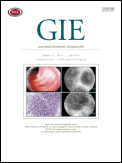
Celiac.com 06/15/2011 - A duodenal biopsy during endoscopy is the gold standard for diagnosing celiac disease. Because the histopathological features suggesting celiac disease , specifically villous atrophy, can vary in severity throughout the length of the small intestines, the American Gastroenterological Association Institute recommended in 2006 that at least 4 specimens be taken for examination. Yet the degree of adherence to this recommendation has not been assessed, and neither has its impact on diagnoses. A recent study by Benjamin Lebwohl at the Columbia University Celiac Disease Center concludes that most physicians are not following the guidelines, but they should be; doing so doubles the diagnosis of celiac disease.
Dr. Lebwohl and colleagues collated the specimens sent to Caris Life Sciences, a specialized GI pathology laboratory that receives samples from endoscopy centers in forty-three states plus the District of Columbia and Puerto Rico. They looked at 132, 352 patients who had endoscopies for various indications between January 1, 2006 and December 31, 2009. From these endoscopies, only 35% followed the recommendation of submitting at least four specimens. There was a slight increase once the guidelines were proposed, in 2006; but by the end of 2009 adherence to the guidelines was still a low 37%. Interestingly, the number of specimens submitted could be directly correlated with the probability of a positive diagnosis of celiac disease.
Celiac.com Sponsor (A12):
Adherence varied by indication, with the highest rates (43.9%) among patients undergoing endoscopies for diarrhea and the lowest rates (30.0%) among those having endoscopies because of heartburn. Among patients having endoscopies for malabsorption or suspected celiac disease adherence was only 38.5%. Adherence to the guidelines also decreased with the age of the patient. The researchers did not have access to socioeconomic or racial data regarding the patients, so could not determine if that factored into adhering to the guidelines.
The proportion of patients diagnosed with celiac doubled when at least four biopsy specimens were submitted. This increase varied by indication; it was most apparent in those undergoing endoscopy because of malabsorption and suspected celiac disease, but was present for the other indications as well. This study validates those recommendations; hopefully the slight increase in adherence since they have been proposed will continue to grow.
Source:
- Open Original Shared Link





Recommended Comments